Arts and Culture
Article
The Culturephiles
54832817-7fc6-467e-b6b9-c3af3f25c950
5 min
https://edge.sitecorecloud.io/tessituraneab9a-tessiturane5642-staging-5396/media/Images/Discover-Images/Andrew-Blog/Opera/opera-curtain-768x465.jpg?h=465&iar=0&w=768
Welcome to opera country!
Learning to Love Opera

President & CEO, Tessitura
Learning to Love Opera
9/12/2019
5 min
I’ve been on a year-long quest to truly understand cultural forms I have always puzzled over.
If you’ve followed along on my journey, you will see how I learned how to love a day at the art museum and truly enjoy an evening of ballet.
The latest attempt was perhaps the biggest puzzle: opera.
Opera blockers
For the longest time, I had just given up on loving opera. I put it in the same category as olives and cilantro. Other people loved it, I didn’t. I kept trying it and it was never quite my taste. Nonetheless, while I feel no shame at picking olives out of my salad, given my chosen career, I did feel a bit chagrined that I couldn’t have an immersive opera experience.
So I got analytical about it. I sat down and thought about what my personal opera barriers were. What were my opera blockers?
Here they are:
1. Too much for me to take in. There is so much to focus on! Orchestra, voices, staging, costumes, sets, dialogue, plot, dance. By trying to focus on everything, I end up focusing on nothing, getting overwhelmed and tuning out.
2. Foreign Language: Most opera isn’t in English. Even with supertitles, it is hard to keep track of what is going on, and many opera plots are serpentine.
3. Length: Operas are often a long night. I get sleepy.
4. Vocal style: I’ve just never grown accustomed to the traditional “opera voice” vibrato.
Removing the blockers
As project management textbooks will tell you, once you have identified your blockers, the next step is to systematically remove them. Could I remove my four opera blockers?
I realized that the first three could easily be addressed at once. The top three — too much happening, don’t understand the language, and too long — are all symptoms of the same thing: It is all new. Every opera I’ve ever been to has been a first-time event for me. It can be overwhelming and confusing. It makes perfect sense that I have trouble with it.
So next I pondered, is there anywhere else in life that you would willingly pay money to experience something overwhelming and confusing because it is worth it in the end?
Yes, there is: foreign travel.
When you travel to a country which speaks another language, are you not overwhelmed and confused? And yet, you still love the excitement and novelty of travel. So I spun out the analogy in my mind:
If a night at the opera was a trip to a foreign country, how would I prepare?
Well of course, I would research it. I would learn what I can in advance. I’d buy a travel guide, browse travel websites, perhaps learn some of the language.
I realized that my analogy extended to my “opera voice” feelings as well. Opera has a distinctive vocal style. Other countries have distinct languages, accents and cultures. When I visit a new country, these things are typically subject to curiosity and wonder, rather than scorn. If I were to think of it as a vocal styling distinctive to “opera country”, did my problem with it drain away?
Actually: yes. It was a change of mindset, nothing more.
Welcome to Opera Country
Now I put it all back together. If I thought of a new opera in the same way I think of traveling to a new country, how would I research it? How could I learn an opera in advance? To learn about a new country you might go to TripAdvisor; to learn a new opera….Spotify? What if I listened to and learned the opera before I saw it? Would that improve my experience?
Is the answer to loving opera in the modern age literally “there’s an app for that”?
The Queen of Spades
I had an opportunity to try all my new theories almost immediately. Planning a trip to London, I pre-purchased a ticket to Tchaikovsky’s The Queen of Spades at the Royal Opera House. I had never heard a note of it. I had a few weeks to prepare, so I put my theory to work in six easy steps:
1. Find the complete opera on Spotify or another music share site.
2. Listen to the entire opera. Take it in pieces throughout the day, or over a few days. Just as you would spend hours researching a vacation, consider this prep for an opera vacation.
3. Next, if you hear a track of the opera that you really like, add it to your own private playlist. I created my own “Queen of Spades greatest hits” in Spotify.
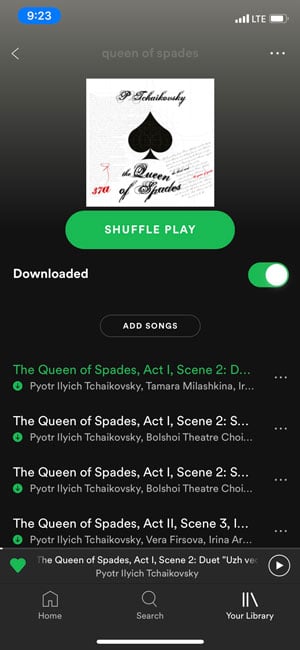
Here is my Queen of Spades playlist
4. Listen to your greatest hits playlist incessantly leading up to the performance. I found that my playlist was about 45 minutes long and on any given day I’d have some reason to put it on. While I was working, going for a walk, on a plane etc. With repetition something unexpected happened: I started to love the melodies.
5. Look up the plot online. Many opera companies provide this and other resources on their websites, and of course if nothing else there’s always Wikipedia. Read it a few times - it doesn’t take long. You don’t need to memorize it. Just understand the basics: the characters, the arc. This makes it so much easier to grasp in the moment.
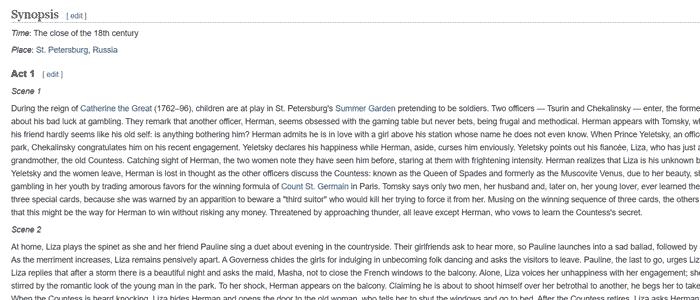
Queen of Spades plot synopsis on Wikipedia
6. Get over the “opera voice” thing. Seriously. Chances are there is at least one pop or rock artist you love who actually has an unusual voice. We can all get over vocal styles we don’t understand. Don’t believe me? Here is four minutes of pure bliss from The Queen of Spades. Just let it wash over you.
* * *
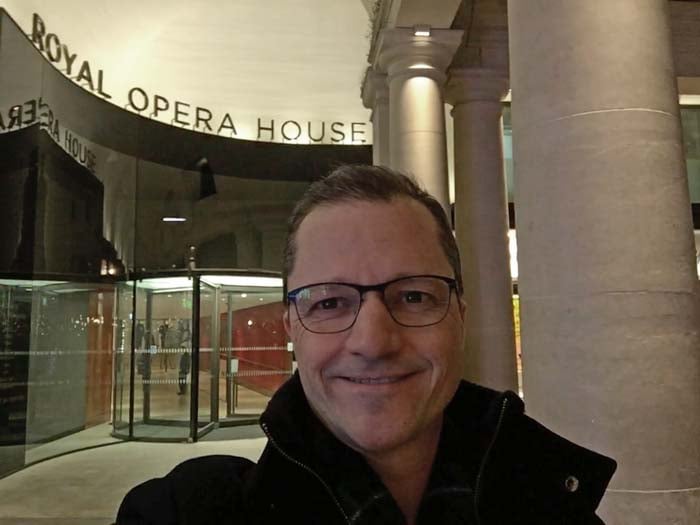
Here I am, going to the opera!
In the end, it was amazing. By the time I walked into the Opera House, I knew all the major musical moments like the back of my hand. I knew the plot and I appreciated the singing. Most importantly, I was able to relax and just take it all in. The glorious sets, the costumes, the staging, the individual virtuoso performances. And because my “greatest hits” included portions from every act, I always had something to look forward to: the next “hook,” the next plot twist, the next moment.
I traveled to opera country, and I loved it.
Topics
Arts & Culture
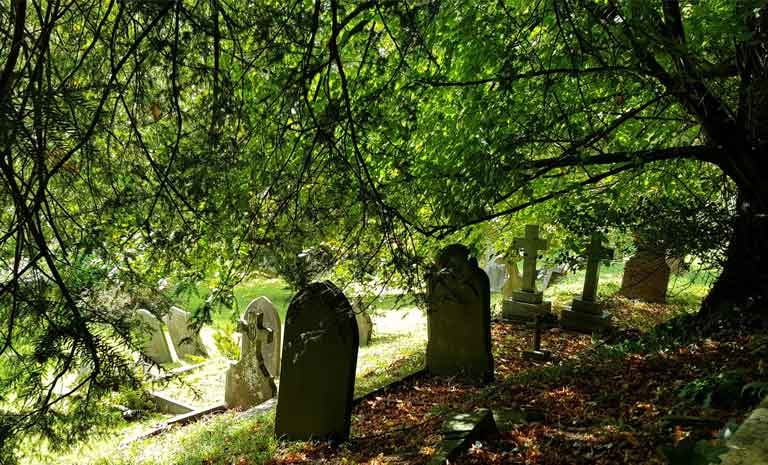
How to be a good ancestor | Andrew Recinos
Arts & Culture
How a conversation with a genealogist changed how I talk with my family
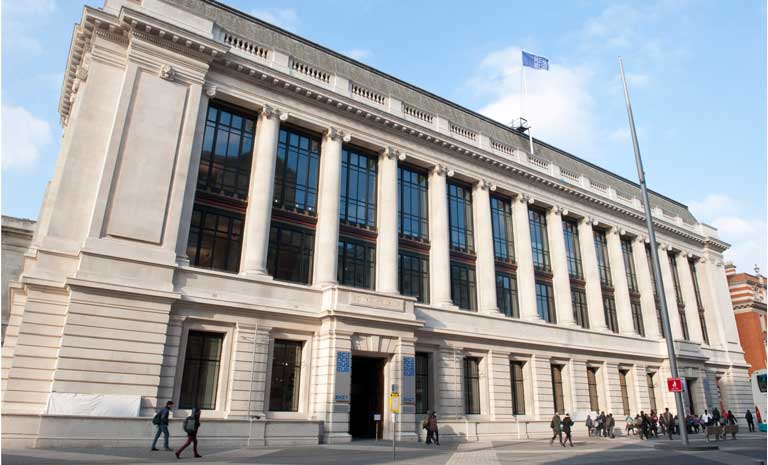
Superpowers of Observation | Andrew Recinos
Arts & Culture / Museums
How a clever museum exec looked up from the numbers and saw the story of the solution.
